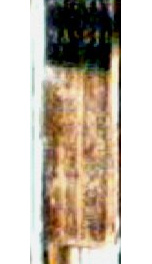the american manual or new english reader consisting of exercises in reading

Purchase of this book includes free trial access to www.million-books.com where you can read more than a million books for free. This is an OCR edition with typos. Excerpt from book: from some unknown power : ''Gaze not idly upon others, when thou thyself art smking. Whence is this though ttau tranquillity, when thou and they are equally endangered V I looked, and scaing the gulf o'f Intemperance before me, etarted and awaked. Dr. Jolmtan. Sectiox Iv. Death of Socrates. 1. Socrates, the famous Greek philosopher, was bom at Athens, about 451 years before; Christ. He gave early prooft of his valcr in tho service of his country, but eMefly applied himself to the study of philosophy ; and was a person of irresistible eloquence, and accomplished virtue. Hi distinguishing characteristic was a perfect tranquillity of mind, which enabled him to support, with patience, the most troublesome accidents of life. 2. He used to bep of those with whom he usually conrer- sed, to put him on his guard, the moment they perceived in him the first emotions of anger ; and when they did so, h instantly resumed perfect composure and complacency. His wife, Xantippe, a woman of the most whimsical and provoking temper, afforded him sufficient opportunity of es- ercising his patience, by the revilings and abuse with which she was constantly loading him. 3. Socrates possessed, in a superior degree, the talent of reasoning. His principal employment was the instruction of youth an object to which he directed all his care and attention. He kept, however, no fixed public school, but took every opportunity, without regarding times or places, of conveying to them his precepts, and that in the most enticing and agreeable manner. His lessons were so universally relished, that the moment he appeared, whether in th public assemblies, walks, or feasts, he was surrounded with a throng of the most illustrious " scholars and hearers. Thif young Athenians quitted even their pleasures, to ... --This text refers to the Paperback edition.
Info about the book
Author:
Series:
Unknown
ASIN:
B00A185XYY
Rating:
5/5 (5)Your rating:
0/5
Languge:
English
Users who have this book
Users who want this book
What readers are saying
What do you think? Write your own comment on this book!
write a commentif you like the american manual or new english reader consisting of exercises in reading try:
Do you want to read a book that interests you? It’s EASY!
Create an account and send a request for reading to other users on the Webpage of the book!


